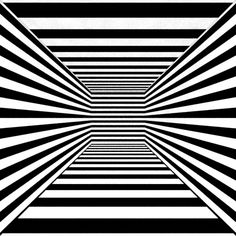|
LITR 4368 Literature of the Future |
Sample answers
for Essay 1:
|
 |
Vicente Garza
Tech and the World
Ah, the future. The World of Tomorrow! What wonders await? What
horrors await? We cannot tell, as we
are incapable of time travel at this moment, or clairvoyance enough to see what
will come with the passage of time. We can, however, catch glimpses into the
world that may be through our literature. There are tales of tomorrow that hold
low technology in a world torn asunder, high technology in utopias and
dystopias, and tales of a world returned to nature, and these all give us a look
into what humanity may one day forge.
Some of the most appealing things for myself is seeing an alternate
version of our world. This entails having
our Earth under some very radical changes. Our very first reading,
Parable of the Sower, accomplishes
this world marvelously. In this world, the country has fallen to the darkness
and humanity has been reduced to the brink of civilization. People live in
small, walled off communities to stay alive and to keep everyone else out. Trust
is not something so easily attained, as the people outside the walls are often
drug-addled lunatics who thrive on the death and destruction of others. This is
an example of low technology in a world that has come undone. There are a few
instances that are mentioned having some technological advances that we in our
own world do not have, but these are far and few in between, and usually lie in
cities that have turned into a place where people trade their lives and freedom
for safety. It’s certainly not the world we live in. Why are these things so
appealing to us? Perhaps we are in fact too comfortable in our own lives that we
see this craziness and desperation to bring a modicum of excitement to our
lives. While this can be seen as an example of a potential future, it serves
more to be seen as an alternative reality. Similarly, we can look at
Speech Sounds and find a similar
world where humanity has turned on itself. In this story, it’s due to a disease
that has robbed people of different functions, whether it be speech, or the
ability to read. The world has descended into a similar state of chaos as it did
in Parable.
Next, we transition into a true and blue world of tomorrow that could be
considered a “utopia.” Newton’s Sleep
serves to show us humanity in a different light. In this story, people look to
travel to space with the best and brightest people in order to preserve and
advance humanity. With a colony numbering only 800, they seek to make a
functioning society that can one day lead humanity into a new age of prosperity.
With a failing Earth left behind, these people should be in bliss, as they want
for nothing, and they can fix deficiencies as is evident by Esther’s upcoming
operation where she can choose new eyes, quite literally. Living in space,
physically replacing eyes, living among the best in their respective fields? If
this isn’t the definition of a utopian society, then what is? All is not well,
though. One theme that was seen here and also in
Cyberfiddle is the primal desire to
return to true humanity, or simpler times at the least. In our colony, the
citizens begin to see visions of things that should not be there. At first, a
ragged woman who is believed to have been a stowaway. A stowaway, after all the
years they had been up there and they had barely noticed them? Seems fishy. But
people began to see other things. Isaac’s wife saw a vine growing near their
door. Isaac himself finds that he has stumbled on a rock as he heads to find
Esther who has left for the mountains to be alone for a while. None of these
things seems to actually be there, and yet the people see it. For all their
technological advances and “perfect society, the people cannot deny that they
yearn for their roots. Same goes for a man who doesn’t want to simply synthesize
a violin, but wishes to build one with his two hands. Utopias rarely work, and
in this instance, it is no different.
So which of the two is the way to go? Do we look towards a future where
our world is in disaster and we have to fend for ourselves in a disastrous
wasteland, or to one where we live in perfect peace and wish we had some
conflict? There is no definite answer because there is not just the choice
between these two. Melissa Holesovksky puts it best when she says “…low tech
scenario of science fiction writing has a warm feeling of reality that so many
can associate with while high tech has a cold disconnection from the real
world…” In order to fully appreciate one genre we need to look at the other. We
still seek out low tech because we associate it with ourselves as an alternate
reality.
We cannot forget about Ecotopias, however. In an Ecotopia, civilization
has often either reverted into a more primal, yet more peaceful state, or has
followed through with integrating technology and nature into one. We find
ourselves with houses of the future with trees holding them fifty feet in the
air, and growing throughout the insides of it, to name one example. In
Chocco we find that the world we live
in has come to an end. No, the world is still very much intact, and humanity is
still alive and well. It is
our world that has ended; the
world we are currently living in. The people who live refer to us as the machine
people, and for good reason. In their eyes, we could not live without our
contraptions and machinations. In this story, it’s actually what led to ruin, if
Mikal is to be believed. And so, these people live in harmony with nature,
researching and remembering us, the machine people, as a memory and as a
reminder of why they should never go back to that way of living. This is a
difficult story to categorize, as it is both a decline and progress tale. There
is no conflict to speak of for this society, simply a reminder for us that this
may be our future. Personally, Ecotopia would appear to be the way to go when
talking about how I’d like the world to end up. It beats a desolate wasteland,
or a cold grey perfection any day. We are animals, just very organized animals.
These scenarios are the type that I have seen most often when reading
books, watching movies, and playing video games. They call out to me a little
more than other things like alien encounters or invasions. Why that is, I’ll
never know. They definitely hold appeal for readers, if simply to imagine a
different way things could be, to self-insert as the heroes the literature
portrays, or to imagine how life would be in that world. Additionally, these
types of literature can be used to both entertain, as well as instruct, as is
the case in Chocco for instance. This
story is both entertaining due to the nature of the contest between the two
prospective choices, but is also a lesson to humanity not to end up like the
machine people did. It’s much easier to have a finger wagged at you if you’re
enjoying the subject matter. And naturally, these scenarios are examples of
evolution of civilization, and alternative futures and realities.
Who knows what the future holds? I certainly don’t. People tell me I act older than my age, so in all honesty sometimes these advances in technology make me feel even older. The world may never see these realities, as man may end up destroying itself before we ever get the chance to live these. We can always imagine, and we can always read and write more stories of the world of the future. Through these, we can already live in the world of tomorrow, today.




